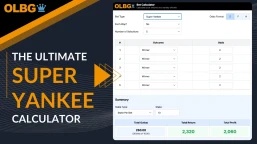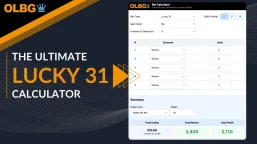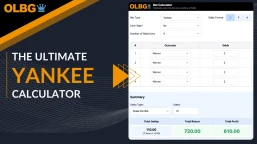
With hundreds of different betting sites, finding the best can be confusing. I'll guide you through and find the most suitable bookie for you.
Betting Terminology - An Introduction
Betting terminology refers to the language used in the betting world and what you may often hear from or in a bookmakers. Some of the words are unique to the world whilst others are borrowed from the English language and mean something quite different outside.
Embark on a journey to mastering betting jargon with this detailed guide to betting terminology. Whether you’re a novice or a seasoned punter, you’ll find invaluable insight into the A-Z of betting language, including essential abbreviations and slang terms. Unlock the secrets of betting parlance.
Master the Betting Lexicon with Our Expert Glossary! 🎲📖
Use the links below for a shortcut
- Horse Racing Betting Terminology
- Football Betting Terminology
- Bookmaker Terminology
- Bet Type Terminology

Our A-Z of betting terminology takes a look at some of the words associated with betting that you may not know the meaning of.
From Horse Racing to Football, there are words and phrases that are used in a variety of sports. Some you will already recognise and some you’ll have heard for the first time.
All In
More often used at the poker table than any other scenario.

ALL IN signifies a player placing all of his remaining chips on the table for the bet. The same term may be uttered in a casual manner in betting parlance between friends, but rarely means the same thing as on a poker table.
Arbitrage
An arbitrage bet in sports betting means that you can place a bet on every outcome of an event and still make a profit, no matter what the result of that event may be.
Usually, arbitrage betting comes when bookmakers disagree on specific odds for markets, or price up markets mistakenly.

‘Odds comparison tools, such as ValueChecker, have made arbing easier over the years although they have never encouraged it. The primary use of odds comparison is simply to choose which bookie is the best for a given bet
An Arber
A punter who locks in profit through exploiting a market by backing all outcomes of an event at a combined book of less than 100%.
Best Bookmakers for Arbing
BAGS
The vast majority of greyhound betting in the UK will be provided through BAGS streams, either in bookmakers in-store or streamed online but what does BAGS stand for?
BAGS stands for Bookmakers Afternoon Greyhound Service, although this service also runs through mornings and evening too!
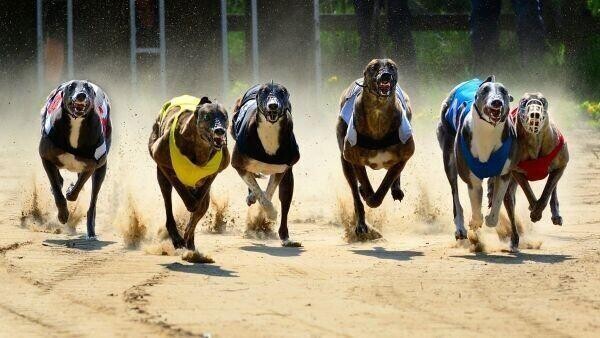
BANKER
A banker as a term has similar connotations to NAP, in that it is the most confident selection in a collection of bets. As opposed to a NAP which is tightly connected to horse racing, a banker is more closely related to football bets, and one selection within an accumulator bet.
You may be asked 'What's your banker today?' And in reply you would, (if you wanted) divulge the most confident selection from four in an accumulator on a football coupon.
"I feel Manchester City is the "banker" they look "nailed on" to beat Luton.
Read Now
Betfair Commission
Betfair is not a bookmaker but a betting exchange providing a platform for one punter to bet against other punters, whilst betfair settles the bets and distributes the money between the winners and losers. They make a small charge for this service and this is the commission. The rate of the commission varies but they use 5% as a base rate.
Betfair is not the only exchange available and commission rates can differ between them. Check this list of UK betting exchanges to find which ones offer lower commission rates than Betfair.
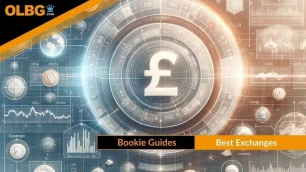
Betting Exchanges UK - The best sites in the UK
Buy
When you support a selection when spread betting
Chasing
Chasing can be used in a couple of scenarios in gambling, firstly and innocuously Chasing is a type of national hunt race where horses jump over larger obstacles called fences as opposed to hurdles. The Grand National is a chase race

More sinisterly chasing is used in respect of 'chasing losses' - Something most gamblers would have done at one point or another but is something that is to be avoided at all costs.
When chasing losses irrational choices are made, the level of risk is forgotten and in a desperate attempt t not lose, gamblers often find themselves with significantly larger losses.
Chasing is to be avoided at all costs - begambleaware for further information.
What does Dutching mean?
Backing more than one selection in an event with the aim of making the same profit whichever of the bets wins. We have a dedicated article on the betting school for expert dutching advice.
You can find it here
Favourite
The selection in an event with the shortest price of winning. Every event will have a favourite to win. In some cases, there may be more than one selection with the shortest price in which case they become joint favourites (2) or Co-favourites (3+)
See the Horse Racing Section for more information.
Greening Up
Is when you secure a profit on a selection after backing and then laying a selection, or laying and backing a selection on a betting exchange.
Hedging
Backing another outcome in an event you have already bet on to decrease the risk involved. Bookmakers are doing this by default on each and every bet they take from a punter, but you can do it too.
Hedging
Hedging Advice
Who are IBAS?
The Independent Betting Adjudication Service (IBAS) is a third-party organisation that tries to settle any disputes that punters have with bookmakers and provides informed adjudications on issues that can arise.
In Running
When bets are placed during an event it is known as in-running betting or 'Live Betting.
In running betting is usually seen on the exchanges, but more bookies are now offering in-running betting on their normal sportsbook now.
Some sports are better than others for live betting, and we have a complete lesson on in-running betting, from the basics through to more advanced strategies for betting whist the action is taking place.
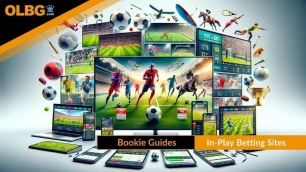
Top In-Play Betting Sites in the UK for 2026: A Guide to the Best Live-Betting Bookmakers
Lay
Betting on something not to happen.
This would very much be the case if you were to go to a betting exchange and place one lay bet. You would in effect be betting that the event would NOT happen
It could be said a bookmaker is, therefore, betting that every horse will lose a race when taking bets from punters on the course and that can't possibly happen.
You would be right, but of course, he is only going to be wrong with one runner that won't lose. He will balance his books to ensure this doesn't happen as often as possible.
How Bookmakers Use Odds
Layers Liability
How much a layer stands to lose if the laid selection wins. Example, if a bookmaker lays a bet to you for £10 at 2/1, he would stand to lose the £20 you would win.
LSP - Level Stakes Profit.
The amount of profit that would have been made if all stakes had been 1 unit. One of the criteria in the OLBG Tips Competition. is that you make a level stakes profit in the month to qualify.
Odds on
Odds on refers to betting odds that are 'lower' than Evens or 2.00 - Odds that are bigger than evens are Odds Against
Odds less then evens in fractional odds or 2.00 in decimal odd are deemed to be 'odds on
| Fractional Odds | Decimal | On or Against? |
|---|---|---|
| 2/5 | 1.40 | Odds On |
| 1/2 | 1.50 | Odds On |
| 1/1 [Evens] | 2.00 | - |
| 2/1 | 3.00 | Odds Against |
| 5/2 | 3.50 | Odds Against |
Over-round
The margin the bookmaker builds into their odds to ensure they make a profit on an event. The "overround" could also be referred to as the bookmakers edge.
To understand how bookmakers use betting odds and include an over round to ensure profit, is to understand how betting odds work. by doing this, you can help identify value betting opportunities for yourself.

How Bookmakers Work and Create Odds
Pari Mutuel
A tote style betting system used in France (the only betting system in France) - Pari Mutuel differs from fixed odds betting as the final payout isn’t determined until the pool is closed.
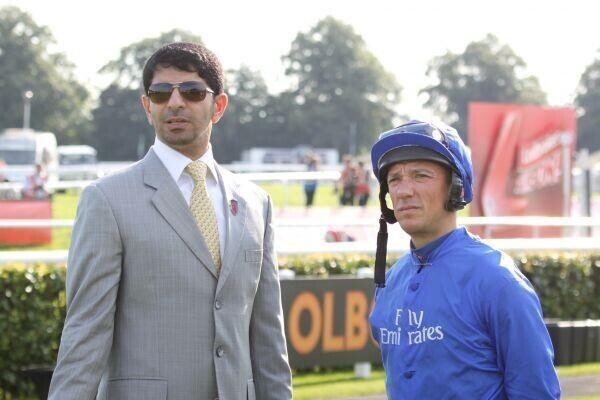
Permutation
A bet that contains a large number of selections covering a large number of different outcomes.
The table below runs through the total number of doubles, trebles and four-folds depending on the number of selections in the full perm bet
| Picks | Singles | Doubles | Trebles | FourFolds |
|---|---|---|---|---|
| 1 | 1 | - | - | - |
| 2 | 2 | 1 | - | - |
| 3 | 3 | 3 | 1 | - |
| 4 | 4 | 6 | 4 | 1 |
| 5 | 5 | 10 | 10 | 5 |
| 6 | 6 | 15 | 20 | 15 |
| 7 | 7 | 21 | 35 | 35 |
| 8 | 28 | 56 | 70 | 56 |
ROI - Return on Investment
ROI is an acronym for Return on Investment. Which is the amount of money you either are in profit or loss against the amount you have used to bet with.
ROI is usually displayed as a percentage figure such as ROI = 10%.
OLBG Blogger ‘Zipster’ built a system specifically targeting ROI at one time, and documented the process.
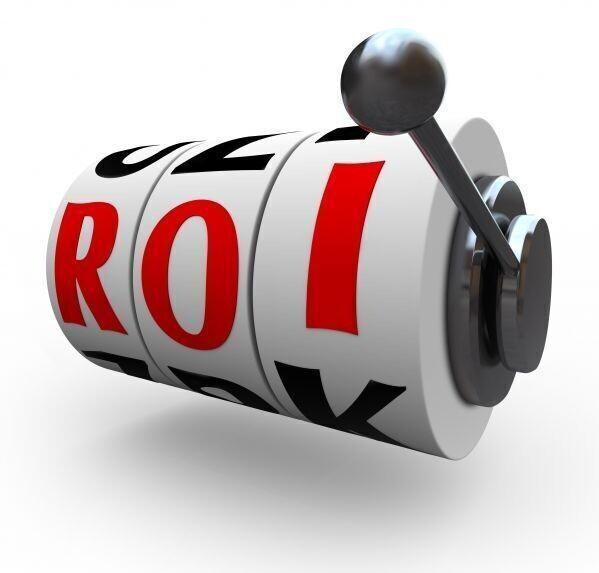
Sell
When you oppose a selection who you feel will not perform well when spread betting.
Spread Betting
A type of betting devised by city traders where punters must decide to buy (bet higher) or sell (bet lower) on the spread (fancied outcome by the traders).
The Can Spread Betting Work blog by OLBG Betting Expert Nigel Skinner documented two football matches taking place on the same evening.
You will require a specialised spread betting form to place this type of bet so we have compared sports spread betting firms on site.

Best Sports Spread Betting Sites
Tissue
The Betting Tissue is the first set of betting odds you may see on a newly priced up event. It is the first draft before any money has entered the market and effected the prices.
Horse Racing Betting Terminology
This section is dedicated to betting terminology you would only hear, or at least mostly hear in reference to betting on horse racing. This can be a wholly entertaining section with much slang which we will include and try to explain best.
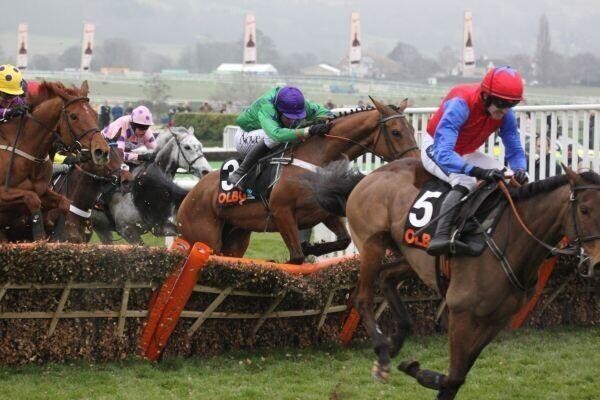
Ante-Post Betting
Ante-Post generally means placing bets more than 24 hours before an event is due to begin.
Ante-Post bets can be placed, days, weeks, months, and even years before the scheduled event is due to take place.
There are specific rules that apply to Ante-Post bets, so please do be aware of these.
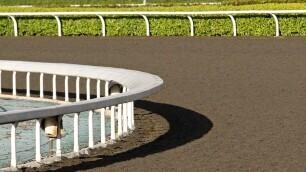
Ante Post Betting Guide
All Out
In Horse racing, All-Out means that the horse in question has given and is giving everything he/she has left in energy reserves to manage the best possible finishing position possible.
Ultimately, all-out as a comment will come in the final stages of a race and confirms that the horse was genuine under an animated effort from the jockey in an attempt to finish as well as possible.
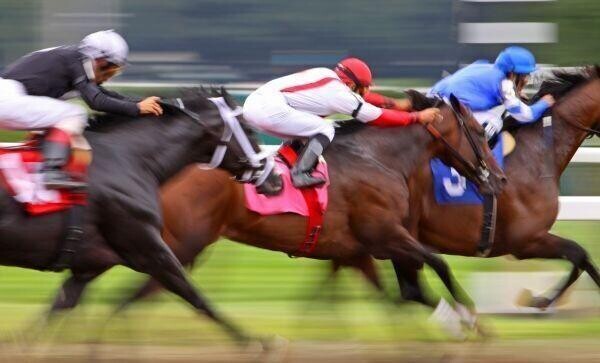
All-Weather Racing
All-Weather horse racing takes place on an artificial surface; not run on a traditional turf surface but actually run on an artificial, synthetic surface instead. These surfaces allow Racing to be held in the UK when there is bad weather, as the artificial running track can take [almost] any amount of rain on it.
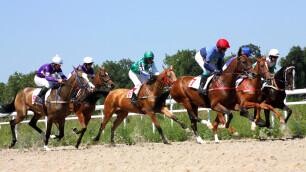
All-Weather Horse Racing Betting: The Ultimate Beginner's Guide
There are six all-weather racecourses in the UK, with Polytrack at Lingfield Park, Kempton and Chelmsford City, and Tapeta at Newcastle, Southwell and Wolverhampton racecourses.
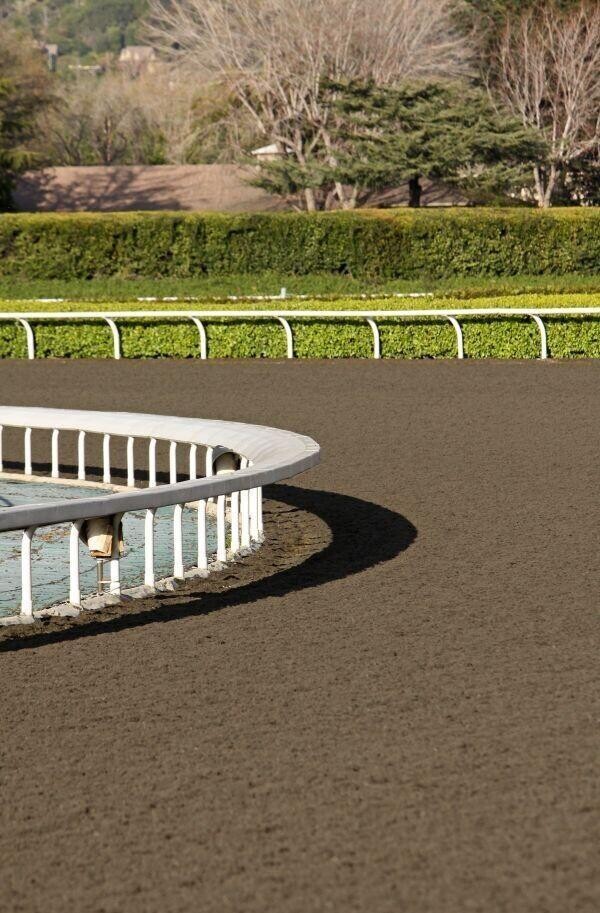
Which all-weather racecourse have which surfaces?
| Track | Surface |
|---|---|
| Lingfield Park | Polytrack |
| Chelmsford City | Polytrack |
| Kempton Park | Polytrack |
| Southwell | Tapeta |
| Newcastle | Tapeta |
| Wolverhampton | Tapeta |
Polytrack
Polytrack is made from recycled rubber, carpet and silica sand and then waxed. Installed at 3 of the 6 all-weather tracks in the UK, namely, Lingfield, Chelmsford, and Kempton, globally it is the most popular artificial surface used for horse racing and is also used widely at training yards too.
It is Polytrack is laid in two layers, a compact layer of about 7 inches depth, and then a further 3-inch loose layer on top.
FUN FACT: Richard Hannon was the 1st Yard in the UK to have Polytrack Installed in 1987
Tapeta™
Very similar to Polytrack, Tapeta™ is a newer synthetic product used for all weather racing in the UK.
It is installed at Southwell, Newcastle and Wolverhampton and was created by former trainer Michael Dickinson.
Tapeta™ is the most resistant all-weather surface to water and specifically rain and can remain raceable even after sustained downpours
First Past the Post
First past the Post refers to the winner who goes past the post first. The term has been adopted for a concession some bookmakers make in the event of a Stewards Enquiry.
Some bookmakers will pay 'First Past The Post' regardless, even if the original winner is relegated from first either through a reversal of positions or disqualification in the steward's room following an investigation.
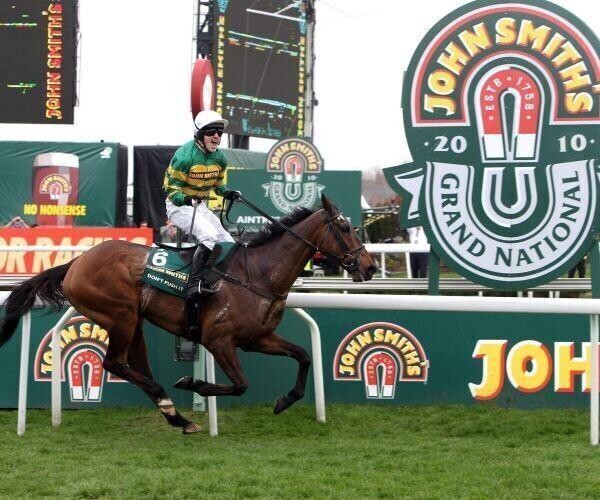
Headgear
There are various forms of headgear used in horse racing. These are signified on race cards by a series of abbreviations.
| Abbreviation | Head Gear |
|---|---|
| b | Blinkers |
| v | Visor |
| e | Eye-Shield |
| t | Tongue Strap |
| p | Cheek Pieces |
Blinkers
What are Blinkers and why do horses wear them?
A device fitted to a horse's head which restricts its field of vision in order to help its concentration. The main reason blinkers are used is to make sure that the horse focuses on what’s ahead of it, rather than what’s in their peripheral vision.
Usually used as a calming down tactic, blinkers can sometimes have the reverse effect during a race.
Visor
Why does a horse wear a Visor?
A Visor is a device fitted to a horse's head which restricts its field of vision in order to help it's concentration. Similar to blinkers, the visor will be put in place to help the horse, but the visor has a slit in unlike blinkers, meaning that the horse can be reassured that there are other runners in the race.
Eye Shield
An Eye Shield is similar to blinkers but restricts the vision in a different way. The purpose remains the same in aiding the horse's concentration throughout the race and avoid distractions.
Tongue Strap
A breathing aid used on horses that has a strip of cloth to stabilise the tongue and stop it from sliding over the bit.
Cheekpieces
Why do horses wear Cheek Pieces?
Headgear worn by horses to help performance, similar to blinkers Cheek Pieces are meant to keep a horse concentrating on the race rather than seeing what’s in its rear vision.
Favourites
A favourite, which can also be known as the 'Jolly' is the horse with the shortest price in the betting market. Thus the favourite to win the race. It is possible to have more than one favourite if two or more horses share the shortest price
Joint Favourite
'Joint Favourites' occur when there are two horses sharing the shortest price in the betting market
Co-Favourite
Co-favourites is an extension of joint favorites in when there are three or more horses sharing the shortest price in the betting market.
Why do tipster’s call their best bet a NAP?
A tipster's best bet of the day. There are several theories as to why the term NAP is used, with the most common one coming from the card game of Napoleon, when a player wins all five tricks being described as having a NAP hand - the best hand. This is why tipsters describe their best bet as being their NAP of the day.
What does NB mean?
A tipster's second-best bet of the day. NB stands for Next Best and will, therefore, be their second, or next best, bet of the day for the days Racing.
Photo Finish
When a result cannot be determined with the naked eye a photo is called for. The judge will then be able to determine the winner and winning distance using a photo. A photo may sometimes then be called as a dead heat, where the odds will be paid out in a dead heat ruling.
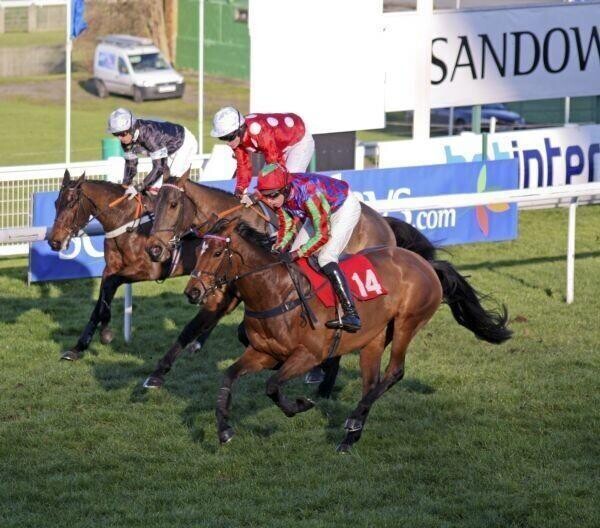
Tote
Betting system that settles bets based on dividends rather than set prices. The Tote has a strong presence at racecourses throughout the UK, but it is also available with most bookmakers online and in shops. The most popular form of Tote betting is the placepot, where you pick horses to place in each race to get a share of the total pool.
The tote often pays more than the industry SP prices, especially at bigger meetings like Royal Ascot or the Cheltenham Festival.
What is an Apprentice Jockey?
A young flat jockey who gains a weight allowance over more experienced jockeys. The weight allowance decreases as the jockey gains more victories. Apprentice jockeys are aged between 16 and 25 and are normally employed by UK racehorse trainers through the duration of their apprenticeship. Apprentice jockeys are flat racers, whereas conditional jockeys race over jumps. Apprentice jockeys
Backward
A horse that is not fit enough or developed enough to do itself justice.
What does Bar mean in betting?
Mainly used in Horse Racing, Bar is a betting term used for selections that are a higher price than the odds that are stated in the chosen betting market. A commentator may run through the first 6 horses in the betting and then mention something like '10/1 bar' meaning the remaining runners in the market are priced 10/1 or bigger
Blanket Finish
A blanket finish is when several horses finish a race that are very close together, so close in fact that you could throw a blanket over them.
What is a Bumper race?
A national hunt race run over the flat (no hurdles or fences), designed for horses who haven’t run on flat before to get that race experience.
Course and Distance - CD / C&D
Course and Distance is a sign that a horse has won over the course and distance a race is taking place, sometimes referring to the same race the previous year.
Read now
What does the Clerk of the Scales do?
The official responsible for ensuring all jockeys weigh-in correctly. The Clerk of the Scales will weigh in all the jockey’s and their equipment before the race begins, before also checking them after the race to make sure that there are no changes.
Conditional Jockey
A young jumps jockey who gains a weight allowance over more experienced jockeys. The weight allowance decreases as the jockey gains more victories. A conditional jockey is under the age of 26 and has not won more than 75 races under National Hunt rules.
Dam
The female parent of a horse.
Dead-Heat
When two or more horses’ finishing positions cannot be separated, the odds are then paid out in dead-heat ruling. For winning markets when two runners are tied, the odds will then be worked out by [(Stake/2) x (Odds-1)] - (Stake/2) = profit/loss.
Draw
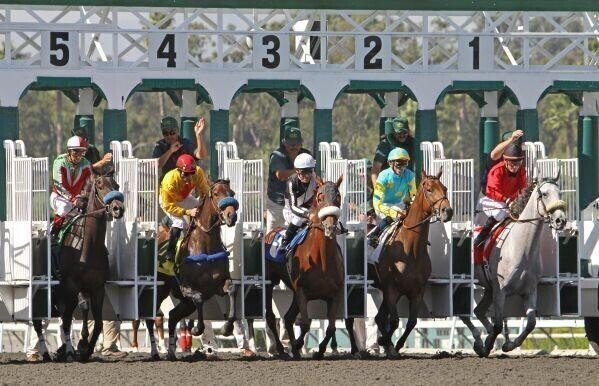
Reference to the number of the stall that a horse will begin a race from. The draw is usually chosen at random on the day before or the day of the race.
Some race courses have a bias for runners in specific sides of the draw, high or low. This can be especially prominent on small running courses like Chester, or wide straight spring tracks such as Ascot.
The Draw is one of the most discussed topics on horse racing.
The Effect of the Draw
Furlong
Standard distance unit in Horse Racing. A furlong is equal to 220 yards and there are eight furlongs in a mile. You’ll see all races in Britain using miles and furlongs.
What does 'Going' mean in Horse Racing?
Going is the description of the underfoot conditions of a racecourse and is an important part of Horse Racing as it can affect how a horse performs.
| Going Description | Effect on Times |
|---|---|
| Heavy | Slowest Ground |
| Soft | |
| Good to Soft | |
| Good | Standard |
| Good to Firm | |
| Firm | |
| Hard | Fastest |
The going ranges from heavy to firm. More rain and moisture in the ground will make it softer and sometimes even heavy when there’s been a vast amount of rain, whereas the dryer the ground the more firm it’ll be.
There are also variances in All Weather ground conditions but these will be far less common given the surfaces are designed to be consistent - You may see Standard or Slow as descriptions
Green
Running excitedly and uneconomical. Running green is mostly associated with young horses with less experience of competitive action on the race course.
Handicap
A race where horses carry different weights based on their official rating or greyhounds get a head start based on their ability.
The aim of a handicap is to try and put all of the runners at a similar playing field.
You’ll see that a winning Horse will be assessed by the handicapper when winning a race, but there’s also a review after running three races where the handicapper will see how the horse has been running.
What is a Handicapper
What is a Maiden horse?
A horse that is yet to win a race. Maiden races are made where all the horses that run are yet to have won a race.
Non-Runner
A horse that was originally declared to run but is no longer participating. A specific reason has to be given by the trainer as to why a horse can not take part in a race and the various reasons are almost endless, including traffic problems getting to a course, veterinary advice and more.
Following Non Runners Next Time Out
Non Runner Info
What does Non Runner No Bet mean?
Non Runner No Bet - Bet on an ante post market where the stake is returned in the event of a non runner. Our Best Odds Guaranteed article highlights the bookmakers that are best for NRNB markets too, with NRNB used usually for big Racing events like Cheltenham for example.
On the Bit
He's Still On The Bit!
When a horse needs no riding from the jockey, meaning it’s an easy ride for them with no pressure needed at all.
What does Overweight mean in Horse Racing?
An eventuality where the jockey weighs more than the weight one of his rides is supposed to carry. In this instance the jockey will either be replaced or be allowed to carry the ‘overweight’.
No jockey is allowed to carry more than 4 pounds of the weight in which they are supposed to and they are also not allowed to change their equipment after they have weighed in.
What is a Rule 4 deduction?
A reduction in odds on bets placed before a certain time due to a fancied runner being withdrawn. The more fancied the runner, the bigger the rule 4 deduction. The reason that the odds are then deducted is due to the fact that the race should then be easier for the other horses to win.
Understand Rule 4 Before Complaining
Rule 4 Help
What are Horse Racing Silks?

The colours worn by a jockey riding a horse to differentiate themselves between other racehorses. The silks represent a horses owner and help out punters and commentators to see which horse is which during a race.
Sire
The male parent of a horse.
SP
Starting Price - the price of a horse when the race starts broadly based on an average of the on course bookmakers odds for the horse.
Stewards Enquiry
An investigation into what happened in a race. Jockeys are interviewed by the stewards and trainers can also be called to give evidence.
The stewards check various camera angles and can result in finishing places being amended.
Stewards Enquiry
What does a Walkover mean?
A race where there is only one runner left after a number of non runners. Jockey Club rules state that the horse has to at least ‘walkover’ the course and past the judges to be declared the winner of the race.
18th century racehorse great Eclipse won 18 races in total over his career, with 9 of them being walkovers as there were no guarantees for prize money for 2nd and 3rd place finishes, therefore trainers didn’t want to race their horses against him.
Bookmaker Terminology
The following examples are words, often slang, that bookmakers and tic-tac men used, and still, to an extent use on the racecourse to these days when communicating, taking and paying out bets.
Who are tic tac men?
Tic Tac Terminology
With technology ever moving forward the traditional method of communication between bookmakers and runners through tic tac men is something seen less and less on the racecourse in the 21st century.
However, many of the terms used are still in use today as slang used on the racecourse and in particular in and around the betting ring.
For old chaps like me there is a real warmth when you see the tic-tac man providing his information from one side of the course to another, with the accompanying hand signals - here are the various terms of fractional prices as indicated by the hands.
| Term | Fraction/Price |
|---|---|
| Straight Up | Evens |
| Tips | 11/10 |
| Wrist | 5/4 |
| Up the Arm | 11/8 |
| Ear'ole | 6/4 |
| Bits on the Ear'ole | 13/8 |
| Shoulder | 7/4 |
| Double Tap | 15/8 |
| Bottle | 2/1 |
| Top fo the Head | 9/4 |
| Face | 5/2 |
| Elef a vier | 11/4 |
| Carpet | 3/1 |
| Burlington Bertie | 100/30 |
| Carpet and Half | 7/2 |
| Rouf | 4/1 |
| Shoulders | 9/2 |
| Handful | 5/1 |
| Exes | 6/1 |
| Neves | 7/1 |
| TeeAitch (TH) | 8/1 |
| Enin | 9/1 |
| Cockle | 10/1 |
| Elef | 11/1 |
| Net and Rouf | 14/1 |
| Net and Ex | 16/1 |
| Double Net | 20/1 |
| Macaroni | 25/1 |
| Double Carpet | 33/1 |
| Bullseye | 50/1 |
| Century | 100/1 |
Monetary Slang
There are a whole host of slang words for money, many of which you probably use without thinking on a daily basis - Quid for example. I'm sure you have said that plenty of times without even thinking about it. This table will help you identify all of the terms you know, and some alternative terms - £1000 for example is commonly known as a 'grand' - most people know that, and many will also know the cockney slang of 'Bag of Sand', but fewer would simply use 'Bag;
This is a fun section
| Monetary Amount | Slang |
|---|---|
| 5p | Shilling |
| 10p | Tanner |
| 50p | Ten Bob/Half a Bar |
| £1 | Quid/Bar/One/Nicker |
| £5 | 'Lady' -Godiver/ Fiver / Jacks |
| £10 | Cockle/'Aryton' [Senna]/Tenner |
| £20 | Score / 'Bobby'-Moore |
| £25 | Pony |
| £50 | Bullseye |
| £100 | Ton/Century/Oner |
| £500 | Monkey |
| £1000 | Grand/'bag' - of - sand/Big One |
Other Bookmaker Slang
Beard
A beard is someone who places bets with bookmakers on behalf of someone else. usually, this occurs and the term is used if the originator of the bet is restricted from betting, or refused bets by a particular bookmaker. The 'beard' refers to a disguise of course'
Bismark
The Bismark was a German ship sunk during the war. The Bismark, therefore, is a confident prediction that a horse will sink without a trace in a race. This was very much adopted by rails bookmaker Barry Dennis for a While when he would be asked for 'Barry's Bismark' Weekly on televised horse racing.
Drifter
A Drifter is a runner whose price is being made bigger because either, no bets are being taken and/or the bookmaker wants to attract money into the satchel to 'balance the books'
Steamer
The opposite of a drifter, a Steamer is a horse whose price is being seen as getting shorter. Often a shortening price is how a Gamble develops. It could also simply be the weight of money having been placed on the runner means the bookmaker shortens the price to stop further bets unbalancing his book too much in favour of on runner.
Understand how bookies use betting odds
Ducking
A bookmaker may be accused of ducking when offering shorter odds than any other bookmaker for the same selection. Of course, his reason may be that he has taken a large bet on the horse and it's a 'steamer' in his book.
Jolly
Another name for the favourite of a race. Chalk is sometimes used, and someone who only ever bets on the favourite of a race is a chalk player.
Rag
The opposite of the Jolly, the Rag is the complete outsider in the betting market.
Kite
A kite is a bookmaker term for a cheque. Again with the evolution of technology, credit and electronic money transfers, this is another bookmaker slang term that is inevitably on its way out.
Beeswax
Beeswax is the slang term for tax used by bookmakers. Of course, all tax has to be paid to the 'C & E' [Customs & Excise]
Knock
Knock is used to describe money that has not been paid. This most frequently refers to a debt not paid.
On The Nose
A bet placed on the 'Win' outcome. Effectively, on the horse nose to be the first past the post
Rock Cake
A rock cake is a small bet
Bet Type Terminology
We could have included a huge list of terms that are associated directly with the types of bets that can be made across a range of all sports.
We thought it would be more beneficial to have these listed as a separate article altogether, so click below to the biggest list of of bet types that you can make on sport.
Responsible Gambling
Whatever terms and sayings we use when betting, we must remember to gamble responsibly. With this in mind, we have a range of responsible gambling articles on OLBG, including those below.
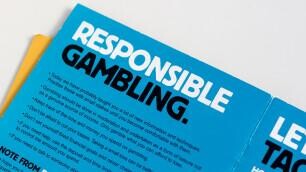
Responsible Gambling Features, Function and Help

How to be Sensible and Gamble Responsibly (Examples)
FAQ
FAQ
Betting Terminology FAQ
Why should i learn betting terminology
The more you know about all aspects of betting the better understanding you will have.
Will knowing betting terminology enable me to win more
There is no guarantee, but why place a bet without having all the facts. If a horse is said to be a "banker" or "nailed on" it would be helpful to know what that means.
Should i learn tic tac?
With the advent of different ways of communication tic tac men are not so commonly used these days. However a rudimentary understanding may help you when at the course.
Should i always know the place terms
Yes that is a must. These days the bookmakers offer a myriad of places especially on the big handicaps.
Have the introduction of betting exchanges added to the terminology
Yes, the terms arbitrage, back to lay, laying, greening up, in play, etc., have become much more commonly used since Betfair became part of the betting landscape.
Does spread betting have Its own terminology
It shares many words with bookies and exchanges, but buy and sell, closing, makeup, margin, and supremacy are specific to spread betting.

